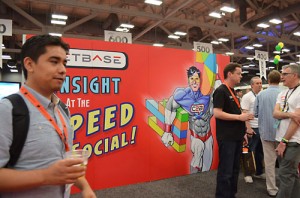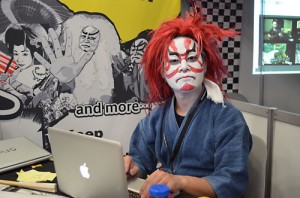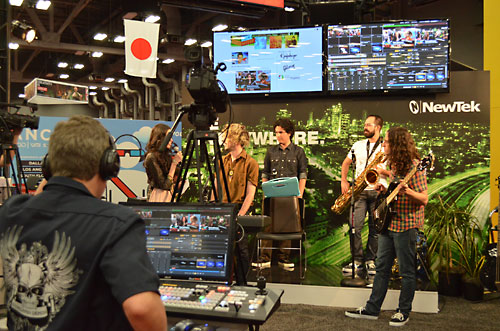Tuesday
I headed for The Right Tool for the Job: Native or Mobile Web? Developers from Facebook, Tumblr, Ember.js and Webkit discussed when it was appropriate to choose to develop apps in the native environment (they were primarily discussing apps for iOS), when web based apps are a better choice. There was also a discussion of the pros and cons of hybrid apps, using the Facebook app as the primary example. The panelists stressed that you get a lot for free with browser based apps, and that monetization is the primary reasons for creating a native app (you can find/sell it in the app store). They seemed to generally agree that content heavy apps might be better served in the browser development model. The development cycle for web based apps was compared to the cycle for native apps- it is much faster to develop a web based app. There was a plea for developers to get involved in the W3C rather than simply complain about their slow progress.
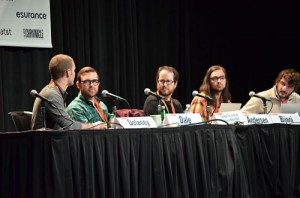
Flash: F Bomb or Da Bomb. This panel examined issues that Flash has with accessibility and also with search engine optimization. Panelist Philip Gross described how difficult/impossible it is to use a screen reader with a site built completely in Flash. Kristine Schachinger, who tests government sites for accessibility, suggested using Flash for small parts of a site, not building out a whole site in Flash because of SEO problems, as well as accessibility. There was some criticism of Adobe for not dealing with these issues. Also a plea to make sites more accessible, not just to “do the right thing”, but as a business decision. Sites that are not accessible are losing a lot of business. The future of Flash was seen in offline applications, such as kiosks, AIR desktop applications.
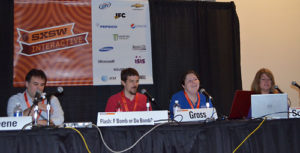
In Coding the Next Chapter of America History Jennifer Pahlka of Code for America described her project of getting developers and programmers into local government to create apps and technologies. She quoted former boss Tim O”Reilly “Government is a platform.”Code for America has a fellowship program, now in its second year, which places developers in local government. Pahlka described the growing pains of setting this program up, as well as demoing a couple of projects that have been built, including Adopt-a-Hydrant, an app that helped users in Boston identify snowed in fire hydrants during a snowopocalypse so they could go dig them out. She also announced the launch of Code for America Brigade, a platform for organizing citizen hackers: “Change your community through software”.
I considered going to the Anthony Bourdain panel, until I saw the huge line of people waiting to get in and decided my panels were over for this year.
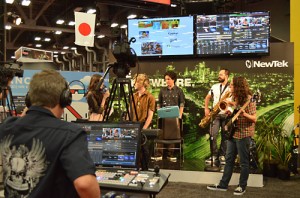
Calvin and I walked the floor of the trade show during the block party, free food and beer, and plenty of swag. Calvin won a tee-shirt with his wicked fast typing skills. They eventually gave me one too, just for hanging around.
